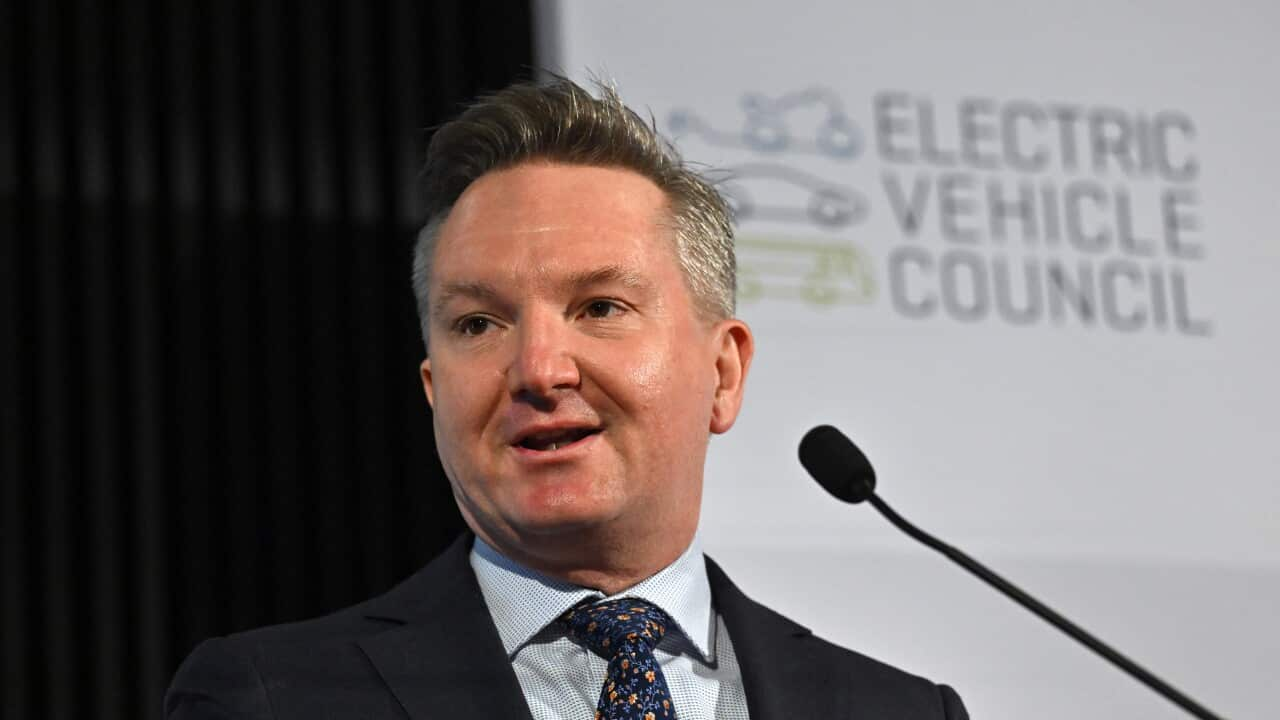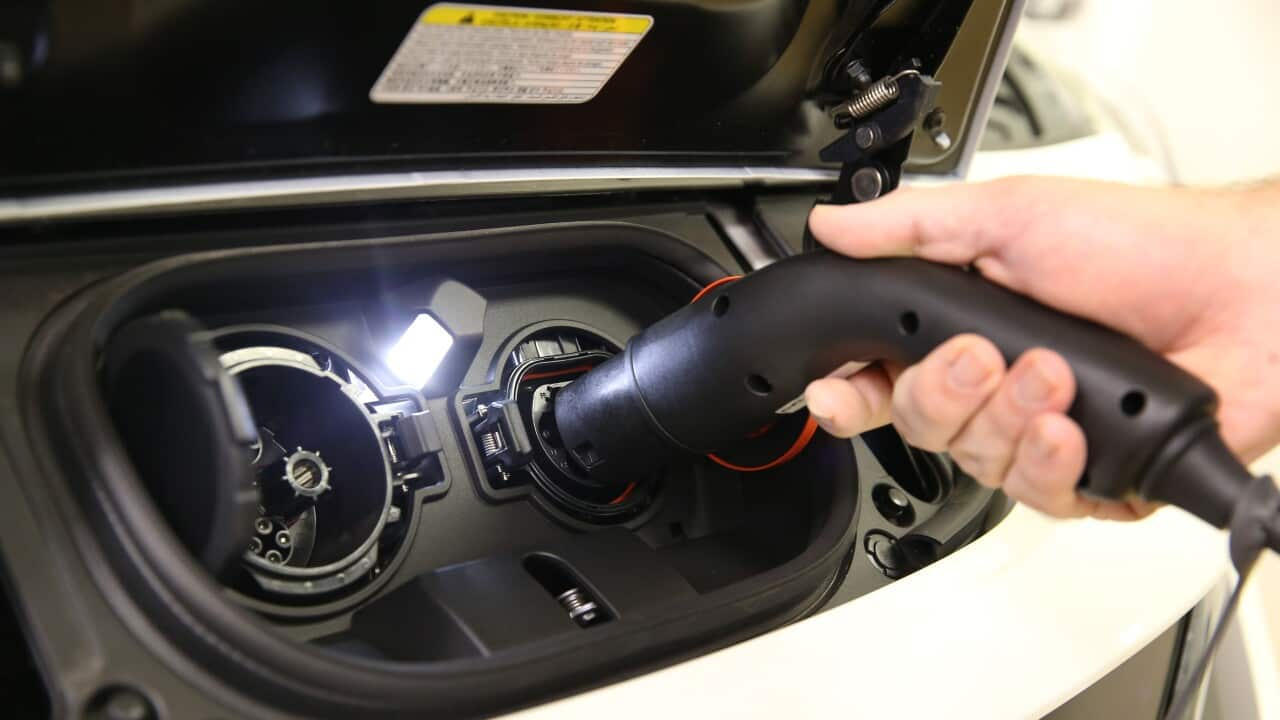Key Points
- The federal government has announced its plan to grow Australia's electric vehicle market.
- It's aiming to help more people be able to access the low emissions cars.
Australians will have greater choice of electric vehicles (EVs) as part of the federal government's push to .
High prices, limited stock and long waitlists have excluded most from the market but a new national plan will help change that, Climate Change Minister Chris Bowen said.
Growing Australia's electric vehicle market and improving fuel efficiency standards will be the focus of the strategy to be developed with state and territory leaders.
Mr Bowen announced the plan at the inaugural national electric vehicle summit in Canberra on Friday, attended by politicians, industry representatives and community leaders.
Australia is significantly behind when it comes to low emissions cars, with just eight options on the market under $60,000, Mr Bowen said.
Uptake of new low-emissions vehicles sits at just 2 per cent in Australia, nearly five times lower than the global average.
"There are many consumers who would be interested in buying an EV but even if they could access the limited stock available, price sends them to petrol or diesel models," he said.
"Policy settings are denying Australians real choice of good, affordable, no emissions cars."
The strategy will also include steps to improve national fuel efficiency standards which Mr Bowen said would help drive down the costs of electric vehicles.
"Apart from Russia, Australia is the only OECD country to not have, or be in the process of developing, fuel efficiency standards," he said.
"As the world moves towards more efficient and cleaner vehicles (Australia) risks becoming even more of a dumping ground for old technology which can't be sold in other markets."
The plan was welcomed by industry while tech billionaire Mike Cannon-Brookes, who co-founded the summit, said it was a "refreshing step" from the government.
But policy changes in Australia needed to be more of a "leap" to catch up to the rest of the world, Mr Cannon-Brookes said.
Mr Bowen estimates Australia is about a decade behind Europe in electric vehicle policy.
Independent MP Kylea Tink plans to bring a proposal to the next parliamentary sitting week in September which would legislate binding fuel efficiency standards for Australia.
Timelines for legislating standards will be worked through as part of public consultation, Mr Bowen says.
Fuel emission reforms were also welcomed by ACT Chief Minister Andrew Barr, who last month announced a ban on the sale of petrol cars in the jurisdiction, due to come into effect in 2035.
"The challenge is that there's demand for EVs, but the supply is just not there," he told SBS News.
"For Canberrans and indeed for Australians, they're looking for more affordable EVs and the market will supply that in time. Fuel emission standards are a key part of that journey."
Mr Barr was hopeful of a coordinated approach from federal, state and territory governments to roll out EV infrastructure.
Chris Mills, CEO of charging station manufacturer Evie Networks, described the new government's approach as a "breath of fresh air".
"When people ask me what are the most important contributors to the success of my business, it's the number of cars that are on the road, and it's the cost of the energy," he told SBS News.
Mr Mills wants to see adjustments to energy tariffs to incentivise the uptake of electric vehicle charging.
"There's plenty of good initiatives, luxury car taxes, rebates on our import tariffs, they're all great," he said.

Chris Mills, CEO of Evie Networks outside the EV Summit in Canberra.
Greens deputy leader Mehreen Faruqi will call on the government to urgently invest in charging infrastructure and discounts on electric vehicles.
The government last month introduced a proposal to parliament to change fringe benefits tax laws and remove the import tariff on electric vehicles to make them cheaper for more people.
But independent advocate for vehicle safety ANCAP says environmental targets should not take precedence over consumer protection.
"It is critical initiatives to promote uptake of alternative-powered vehicles do not undermine the safety of Australia's vehicle fleet," ANCAP chief Carla Hoorweg said.
"We're calling on all levels of government to ensure subsidies and incentives are only provided to models that offer the highest levels of safety."
Additional reporting by Naveen Razik











